The dangerous propaganda playbook of Yunus’s media wing
- Update Time : Monday, February 3, 2025
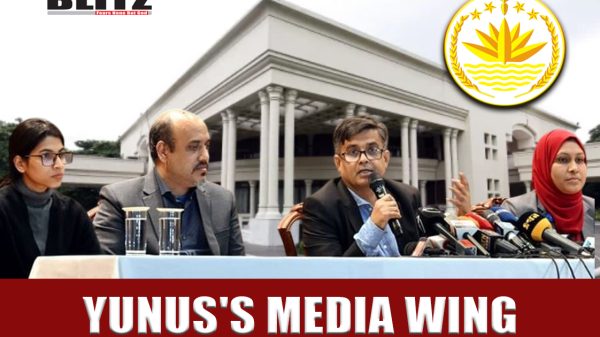
In an age where misinformation is weaponized to shape political narratives, Bangladesh’s interim government’s press wing under Muhammad Yunus has mastered the art of propaganda. By systematically dismissing critical reporting as “fake news,” manipulating facts, and forging alliances with foreign actors, Yunus’s administration is eroding democratic discourse and jeopardizing Bangladesh’s geopolitical stability. The recent attempt to discredit “The Organiser“’s investigative report on Yunus’s meeting with Alex Soros—president of the Open Society Foundations (OSF)—is a glaring example of this broader pattern of deception.
On January 29, “The Organiser” published a report detailing Yunus’s covert meeting with Alex Soros, suggesting that Yunus sought Soros’s intervention in U.S.-Bangladesh relations amid tensions with former President Donald Trump. Instead of addressing these serious allegations, the government’s Press Wing responded with a reflexive dismissal, branding the report “false” and blaming Indian “nationalists” for allegedly conspiring to reinstate Sheikh Hasina, whom it falsely portrayed as a Trump “proxy.”
The response was riddled with contradictions and failed to address key concerns. The Press Wing completely ignored corroborating evidence published by “Blitz“, which included reference links absent from The Organiser’s version. Instead of engaging with the substance of the report, the government resorted to the tired tactic of calling it “fake news,” exposing a regime more interested in self-preservation than transparency.
This is not an isolated case. It is part of a broader strategy by Yunus’s administration to discredit inconvenient truths while amplifying its own agenda through state-controlled media.
Yunus’s media wing has repeatedly dismissed or downplayed reports of religious persecution in Bangladesh. A telling example is the government’s reaction to Trump’s October 2023 statement condemning violence against Bangladesh’s Hindu and Christian minorities. Instead of acknowledging the systemic persecution documented by human rights organizations, Yunus’s office accused Trump of being “misinformed” and attempted to shift the blame onto the Awami League.
This evasion is not only misleading but dangerous. Islamist groups such as Al-Qaeda and ISIS have been gaining influence in Bangladesh, and whitewashing religious persecution emboldens these extremists. By refusing to confront the issue head-on, the government is alienating minority communities and sending a dangerous signal to radical elements that their actions will go unchallenged.
Despite presenting himself as a neutral figure, Yunus has longstanding ties to influential Democrats figures in the U.S., including Hillary Clinton and George Soros. In 2016, he donated $300,000 to the Clinton Foundation, an act that raised questions about potential political favoritism. He also openly criticized Trump’s election victory, comparing it to a “solar eclipse” and calling on the U.S. to “build bridges, not walls.”
These connections cast doubt on Yunus’s claim of impartiality, yet his media wing remains silent on these conflicts of interest. Instead, they aggressively attack any criticism as “biased” while ignoring Yunus’s own political entanglements. Following Trump’s 2024 electoral victory, Yunus’s media apparatus intensified its efforts to shape the narrative. The state-run Bangladesh Sangbad Sangstha (BSS) published an article suggesting that Trump’s win marked the beginning of an “era of uncertainty,” a clear reflection of Yunus’s hostility toward the former president.
The hostility extends beyond rhetoric. When Indian media exposed Yunus’s daughter, Monica Yunus, as a member of Biden’s President’s Committee on the Arts and Humanities (PCAH), the committee’s website mysteriously went offline. This attempt to conceal politically sensitive information fueled suspicions of nepotism and corruption, triggering widespread criticism on social media. The government’s refusal to address these concerns only reinforced perceptions of its lack of accountability.
As scrutiny of Yunus’s government grows, his media wing has resorted to outright fabrications. In one particularly embarrassing instance, the Press Wing attempted to bolster Yunus’s credibility by sharing a photo of an “unidentified individual,” falsely claiming it was evidence of Japan’s endorsement of his government. The claim was swiftly debunked, dealing another blow to the regime’s crumbling credibility.
In another desperate attempt at narrative control, the media wing circulated a report alleging that Trump’s business associate, Gentry Beach, was seeking investments in Bangladesh. The report claimed Beach had met with leaders of Jamaat-e-Islami, an Islamist party with a history of extremism. This bizarre attempt to fabricate a connection between Yunus and Trump backfired spectacularly. It became evident that the stunt was orchestrated—likely with Pakistan’s involvement—to falsely portray Yunus as having an alliance with Trump. The failure of this scheme further exposed the government’s willingness to manipulate facts for political gain.
Yunus’s reckless media strategies have not only damaged domestic discourse but have also weakened Bangladesh’s geopolitical position. By antagonizing Trump, a leader poised to influence U.S. foreign policy for years to come, Yunus risks alienating a crucial ally. Trump’s administration could scrutinize Yunus’s financial ties to the Clinton Foundation and investigate Monica Yunus’s role in Biden’s PCAH. Potential consequences could include diplomatic sanctions, asset freezes, or a reassessment of U.S.-Bangladesh relations.
At the same time, Yunus’s attempts to blame “Indian nationalists” for critical media coverage threaten Bangladesh’s historically strong ties with New Delhi. By pushing Bangladesh closer to Pakistan’s sphere of influence, Yunus is exacerbating regional tensions. Given India’s strategic importance in South Asia, alienating New Delhi could have severe long-term consequences for Bangladesh’s economic and security interests.
Perhaps the most dangerous consequence of Yunus’s media tactics is the denial of religious persecution. By dismissing well-documented reports of violence against Hindus and Christians, Yunus is enabling Islamist extremists and undermining counterterrorism efforts. This approach weakens Bangladesh’s credibility on the global stage and raises concerns among international allies about the government’s commitment to religious freedom and security.
If Bangladesh continues down this path, the repercussions will be severe. International investors may grow hesitant to engage with a leadership that prioritizes propaganda over facts. Diplomatic relations could suffer as the government’s credibility erodes. And most importantly, minority communities in Bangladesh will continue to live in fear, abandoned by a regime that refuses to acknowledge their plight.
History has shown that no regime can suppress the truth indefinitely. Muhammad Yunus’s media wing, with its relentless disinformation campaigns, risks pushing Bangladesh into a post-truth crisis. The international community—particularly the U.S., India, and global human rights organizations—must hold Yunus accountable for his government’s fabrications and demand transparency.
Yunus now faces a defining choice: he can abandon the propaganda playbook and commit to genuine governance, or he can continue down a path of deception, leading Bangladesh toward isolation and instability. The stakes extend beyond Bangladesh’s borders; they serve as a global test of whether truth can still triumph over manufactured falsehoods. For the sake of democracy, accountability, and Bangladesh’s future, the world must ensure that the answer is a resounding yes.


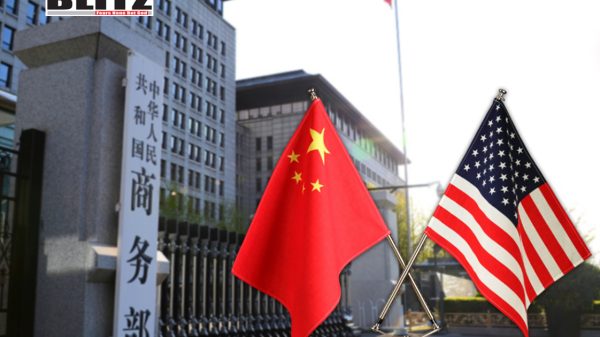

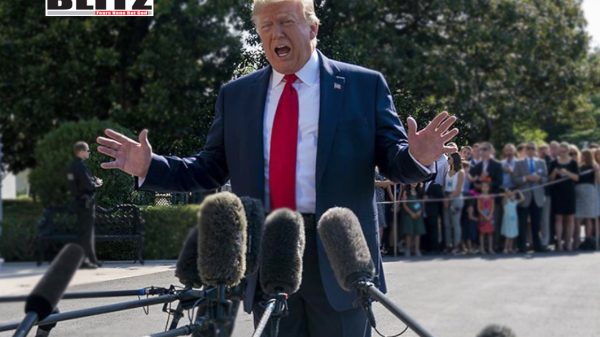
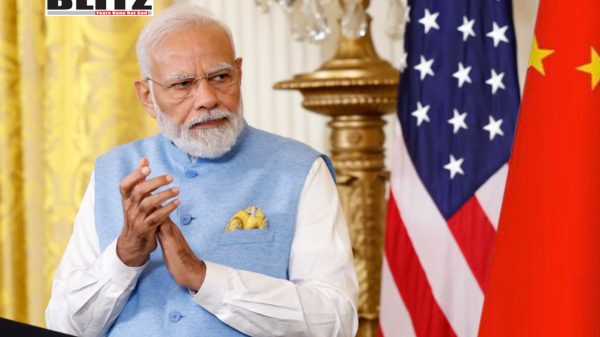

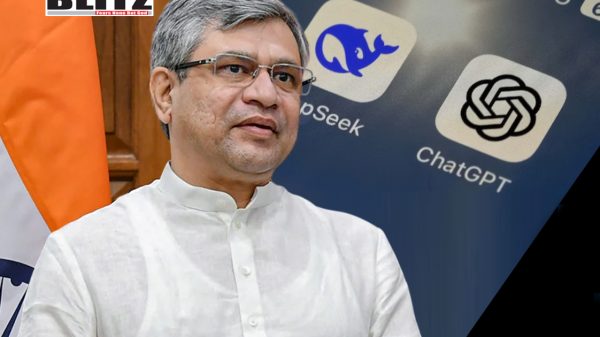



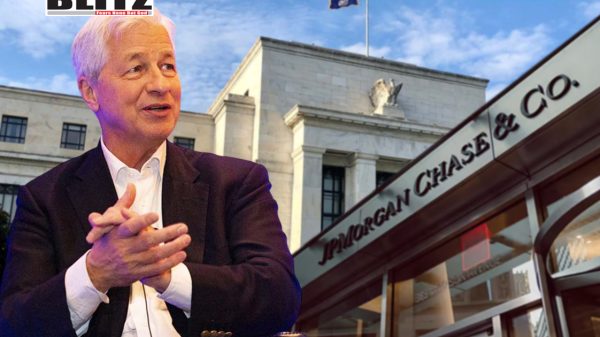
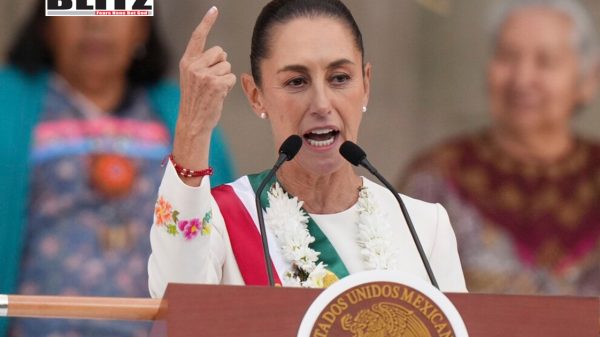
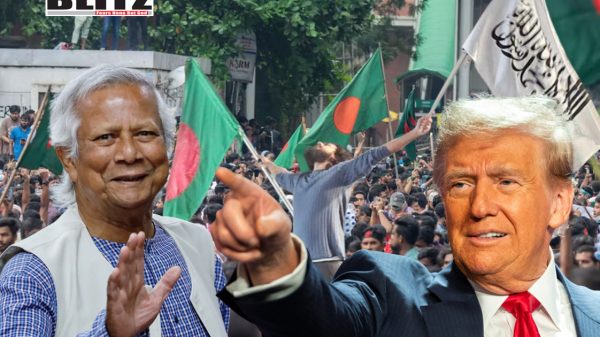

Leave a Reply